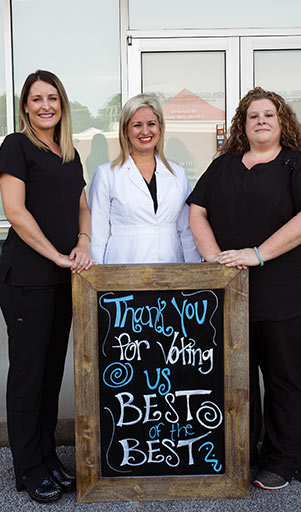These days, millions of men find themselves suffering from a mental fog, lackluster sleep, low sex drive and lethargy. The culprit? Low testosterone. Although low testosterone can detract from the quality of a man’s mental and physical health, solutions are available. Here at Cool Springs MD Chattanooga, we pride ourselves on offering clients in Chattanooga and the surrounding area of Tennessee, including Cleveland, with high quality, customized low testosterone treatments that help restore health and confidence.
What is Low Testosterone and Why is it so Problematic for Men?
As many health experts know, men start losing 1% to 3% of their testosterone with each passing year once they turn 30. And in many cases, men suffer from a condition called andropause, or low testosterone, also referred to as hypogonadism. Unfortunately, the symptoms of andropause can manifest gradually, making it difficult to detect. Additionally, the adverse physiological effects brought on by low testosterone can be confused with the natural aging process. However, it’s important to note that an increase in age does not have to correspond to a decrease in energy.
Symptoms that are commonly associated with low testosterone are:
- Poor mood
- Fatigue
- Low sex drive
- Slow workout recovery
- Sexual dysfunction
- Reduced muscle strength and muscle mass
- Increased body fat
- Body hair loss
- Decreased bone strength
A man may experience the symptoms for many reasons. Some of the symptoms can manifest as a result of medication use. Additionally, clinical depression and chronic illness can generate or aggravate the symptoms. Low testosterone is another reason that could cause an individual to experience adverse physiological changes. Because of all the different causes that can precipitate symptoms, it is vital that individuals be medically tested before beginning any TRT regimen.
What Is Testosterone?
In recognizing that low testosterone can cause a wide range of medical challenges, it’s important to get a substantive understanding of the definition of testosterone. Testosterone is a naturally produced sex hormone. Both men and women produce testosterone, but men produce much more of it when their bodies are functioning optimally. Low testosterone is not just a condition that impacts libido or the quality of an exercise session. In fact, the condition is much more complex. As a sex hormone, testosterone provides growing male children with the sex characteristics associated with manhood. The hormone stimulates normal erectile function, muscle growth, the maintenance of normal bone density, and cognitive function. When an individual experiences a testosterone deficiency, the end result is oftentimes a profound reduction in energy levels.
Causes of Low Testosterone
The three most prevalent factors that contribute to low testosterone levels include medications, injury, and aging. It is well known that the production of testosterone decreases with the passing of time. For this reason, a man who has reached the age of 80 will have significantly lower testosterone levels than a 25-year-old. By the age of 50, a man’s level of testosterone production can drop significantly, thereby causing some or all of the aforementioned symptoms.
In addition to the aforementioned causes, factors such as injury to the brain and any other anatomical structure that plays a role in the production of testosterone can result in low blood levels and the symptoms associated with it. Medications utilized for treatment can also precipitate symptoms. It’s also important to note that many of the prescription drugs taken by aging men can interfere with the production of testosterone. An example would be drugs designed to lower cholesterol. These drugs can prove efficacious in reducing susceptibility to heart disease by decreasing the production of cholesterol as well as the risk of cholesterol build-up in the individual’s arteries. At the same time, the drug can have adverse effects given that cholesterol is a primary ingredient necessary for male sex hormone production. Because the benefits of cholesterol-lowering drugs are significant, some individuals suggest using therapies that will raise hormone levels without enabling an increase in cholesterol production.
What Can Be Done About Low T?
Although hypogonadism is a serious problem that can detract from the sufferer’s quality of life, it’s important to note that viable solutions exist. In fact, testosterone replacement therapy can greatly improve the subject’s quality of life. Testosterone therapy is designed to help individuals return to a physiological state unhampered by stress, illness, medications, and surgeries. Unfortunately, the majority of men who suffer from low testosterone go through their daily lives with low concentration, poor energy levels, and a sense that they are always behind schedule or incompetent.
While low testosterone can negatively impact various areas of a man’s life, the fact that it can have an adverse effect in the work world is particularly problematic. In many cases, a man’s workday can become a profound struggle that leaves him feeling depleted of energy and inefficacious. And because low testosterone results in low levels of energy, these men oftentimes lack the vitality necessary to devote attention to other areas of their lives once they leave work. All of these things matter both to the man suffering from low testosterone as well as his immediate family and friends.
Benefits of Testosterone Replacement Therapy (TRT)
Just as low testosterone can result in a wide range of symptoms, TRT can generate a wide range of benefits. The benefits that result from the treatment will vary from one man to another. The most well-documented symptoms linked to low testosterone include a diminished libido and fatigue. At the same time, the benefits most frequently noted in individuals who undergo TRT include an increase in sexual desire and a boost in energy.
Other Benefits of Testosterone Therapy (TRT)
In addition to the aforementioned benefits, individuals who undergo TRT can experience a plethora of other positive changes in their minds and bodies, such as:
- Reduced fat
- Increased muscle
- Improved concentration
- Better sleep
- Maintenance of bone density
- Increased strength
- Better athletic performance
- Enhanced mood
- Improved insulin sensitivity
- Better erectile function
- Heightened motivation
- Enhanced sense of well-being
Some individuals who find themselves interested in undergoing TRT are drawn because the therapy can help reduce the experience of joint pain. Some experts believe that testosterone’s anti-inflammatory effects are the factor which contributes to the reduction. While some of the symptoms associated with low testosterone are hard to define and lack validation in the form of official medical studies, clinical results still indicate that these symptoms can decrease substantively through the implementation of a TRT program.
How Long Does It Take Before Testosterone Therapy Begins Working?
Although the benefits of TRT can be profound, it’s important to know that they won’t come into being overnight. In fact, it can take several treatments to balance the patient’s hormones correctly. Typically, patients will begin to witness improvements during the first month of treatment. And in general, the most profound changes will start transpiring during the 4 to 6 weeks of treatment. The leading factor that will determine the efficacy of TRT is the patient’s consistency in completing the treatments.
Let Us Help You Now
Although finding the ideal treatment for low testosterone can be challenging, the professionals of Cool Springs MD Chattanooga possess the education and experience necessary to identify and implement the right solution. Dr. Jack Rowland is ready to assist the residents of Chattanooga and the surrounding areas of Tennessee, including Cleveland, immediately, so contact our office today at 423-401-8034, and let one of our friendly representatives schedule a private consultation.











